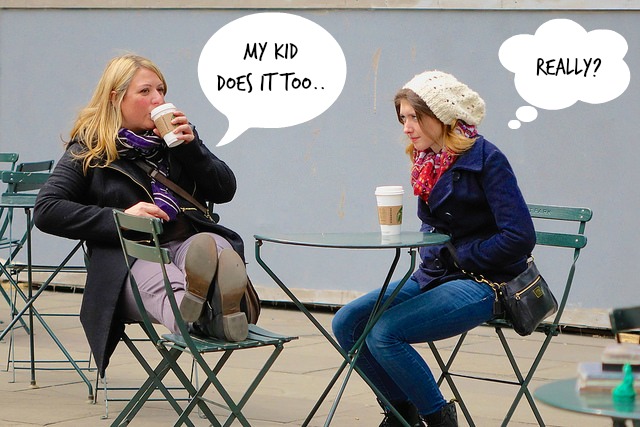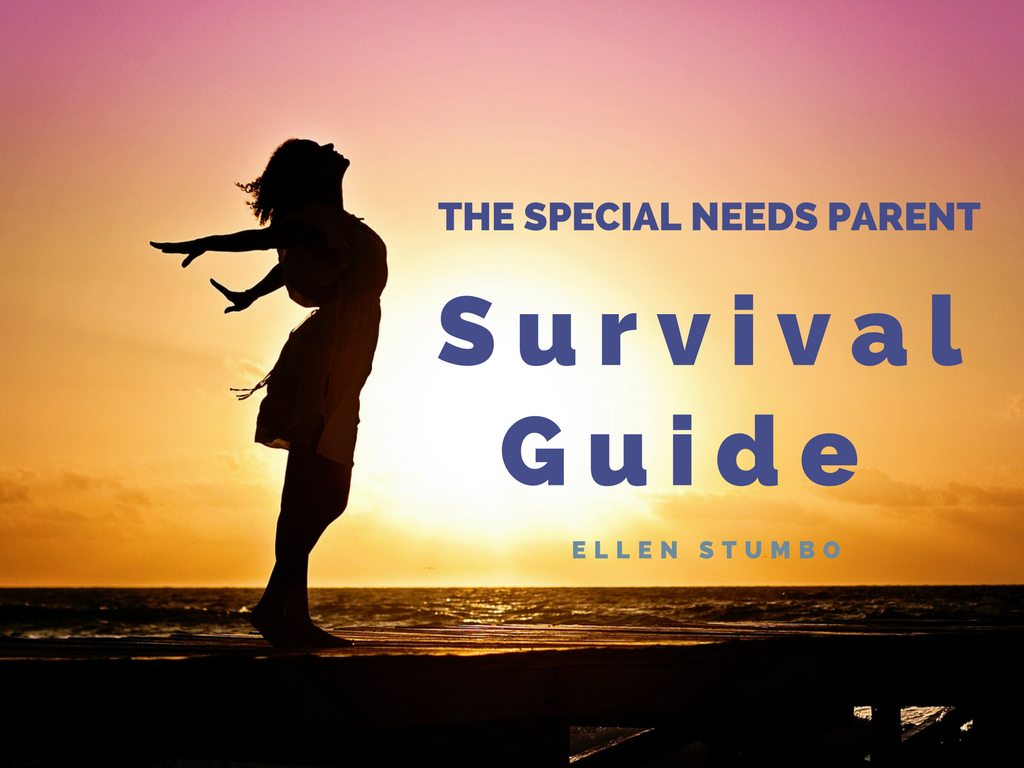It happens in the life of almost every parent who has a child with a disability, at some point we share a concern with a friend over what our child is doing — or not doing — and we’re met with the well intentioned, “Don’t worry about it, my kid does it too!” Except their kid doesn’t have a disability, so it really isn’t the same.

Photo credit: Ed Yourdon (Creative Commons)
I like having friends outside of the disability community. If I was sensitive to every single thing they said, I suspect I would be a hard person to be around, and my friends could feel as if they were walking on eggshells, afraid of saying anything that might offend me. So I am not offended when you say, “My kid does it too!” But deep down those things your kid does too are laced with fear when you parent children with disabilities.
Perhaps my child is not potty trained when he is five years old, and neither is yours. But I fear I might be changing the diapers of my teenage son.
Perhaps your child has a meltdown when she goes to the dentist, but most likely you will not be looking at having to do dental work under anesthesia for the rest of her life.
Perhaps your child takes of running in public places and you fear he will get lost, but most likely he will learn his boundaries. Chances are you won’t be worried about him taking off running during recess at school, fearing that if there is no one-on-one adult supervision, your child will be gone faster than you can say, “Where did Johny go?”
Perhaps your child is a picky eater, but I fear the sensory issues for my child will take a long time to overcome, and she might still be doing crackers and applesauce by the time your child is enjoying a juicy steak.
Perhaps your child was a late talker, and although my child might still be young, I fear most people won’t understand his speech, or that our communication might be limited. Perhaps my child will be nonverbal.
I don’t expect you to understand how those little things your kid does too are red flags for me as I look ahead to the future.
The thing is, I often do find comfort in knowing that your kid does that too, or did that too, or didn’t even come close to doing it, because maybe this is just a typical “kid” thing. And I am thankful that you want to bring some comfort into my worries.
It might be one of those situations that you have to live it to understand it. So instead, would you do something for me, for us, parents of kids with disabilities? Next time we share a concern over what our kid is doing — or not doing — would you say, “My kid does it too! But do you think that’s a normal part of child development, or are you afraid this is a bigger issue for your child?”
That empathy and understanding makes all the difference without dismissing our concerns. Then, I will be able to open up more with you and share my thoughts.
Special Needs Parents, Are You Surviving?
I created a guide with 13 practical ways to help you find peace in the midst of chaos, opt in to make sure you get a copy of this freebie!



Fear ends where faith begins
Hi Ellen – when you asked last week on FB and Twitter about things that bothered us about others’ reactions, etc., this was one of the exact ones I mentioned. I’m glad you fleshed this out so clearly because it’s something that really bothers me. I like your suggestion about how to respond too — to keep the conversation going and not just shut it down. Thanks!
Thank you Jeannie!
Love this, Ellen. I’ve never quite thought of it this way… Thank you of sharing 🙂
I am so glad you posted this. I’ve been bothered for weeks by a facebook comment by one of my friends in response to my potty training post. She said exactly that–her kids want to touch everything in the bathroom too. And I can’t get it out of my mind… her kids are toddlers! Yes, toddlers do that. But 4 year olds? Actually going potty is sort of impossible when the kid is turned around flushing the toilet repeatedly. I highly doubt her typical kids will be doing that when they are 4. It made me feel less understood than more. Thanks for bringing light to that and validating my feelings a bit.
Perfectly put. Thanks! Will be sharing.
I meandering my way through your blog while my 8 year old sleeps off some sensory overload and I must say, I truly enjoy your frank, honest, but gentle manner. Maybe it’s the font and serene blog design, I don’t know…but it’s brutal honesty sans the brute 😉
Meghann, thank you! I think sharing with vulnerability is a gift you extend, so that other people know they are not alone 🙂
This happens a lot. But the old adage is true, “You can’t compare apples to oranges”.People try to do it anyway.
My kids have invisible disabilities. One Asperger’s, one schizophrenia, one Tourette’s and one ADHD. If those of us living with them didn’t know better, it would be hard to “see” their problems. I had the bishop of our church say several times in a hushed whisper, “I want you to know I can’t tell from the outside that
your kids have problems.” And then he
would smile and walk away. After the
third time this happened, I emailed him.
“Because my kids have invisible
differences, there have been no
casseroles on our doorstep when they
have been in the hospital. There have been less inquiries into their general well-being. And, in the worst case, there was even a friend that demanded to see a video of my daughter’s four hour temper tantrums because she could not believe, the well-mannered child in public could be different at home. Disbelief, doubt and non-support have dotted our experiences only because, “Your kids look normal”.
Love this post! I wish there was more empathy and understanding it would completely change things for me. Parenting a child with invisible disabilities I tend to hide amongst those who get it!
And sensory issues are a big deal, for us it is obvious my daughter has Down syndrome, I can imagine that when a kid looks typical, you get little understanding.
I loved this Ellen. I love that you didn’t devalue your friendships with moms of typical kids- they are so important and loved. You were spot on for how I feel about this! Thank you.
Thanks Wendy 🙂